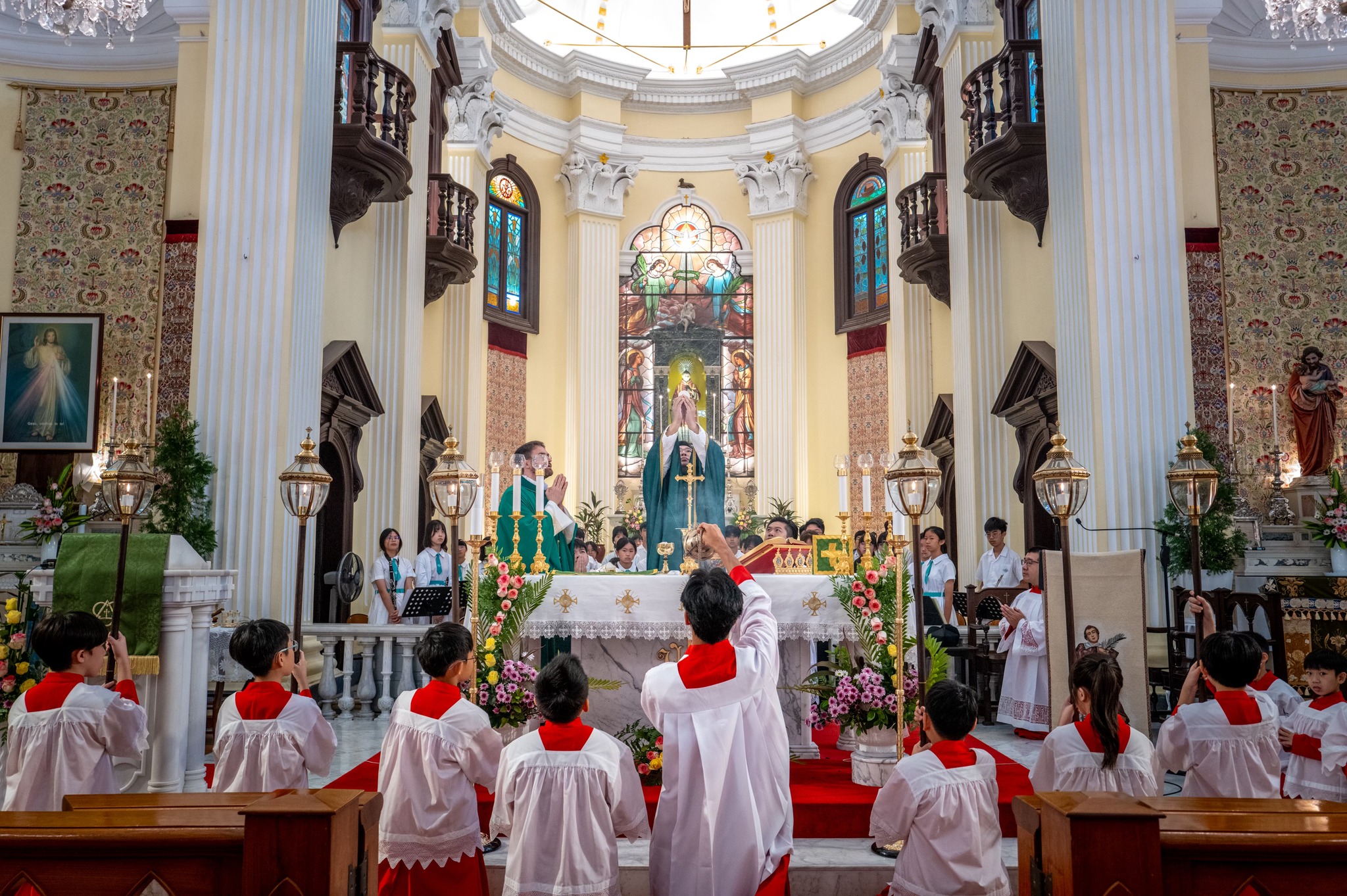FAUSTO GOMEZ OP
Prayer is the living water that nurtures our Christian life. It is like the breathing of the soul, feeling God’s presence in our lives and communicating with him. It is “the lifting up of mind and heart to God” (St. John Damascene). Prayer connects us with God: “When no one listens to me anymore, God still listens to me… If I pray, I am never totally alone” (Benedict XVI, Spe Salvi).
Prayer is the language of the heart in love with God. Prayer is “the mother and well-spring of the upward movement into God” (St. Bonaventure). St. Teresa of Avila, still an incomparable master of prayer, defines prayer as “A dialogue of friendship, being alone (silently) many times (frequently) with the One we know that loves us.” She could not understand why the whole world did not try to approach God through this particular friendship. Prayer consists more of listening than talking, more of exercising the affections of the will than the speculations of the intellect (St. John of Avila, Audi filia…). Prayer is “Intimate intercourse with the Beloved” (St. Charles de Foucauld).
Prayer is universal. Christian love is not selective, but promotes solidarity with all, our brothers and sisters in Christ. We pray for all– for our Church, our communities, and our families; for sinners, for the souls in purgatory; and for our enemies, “for those who maltreat us” (Lk 6:28; Lk 23:24).
Our prayer may be a prayer of praise, of thanksgiving, of repentance, and, most often, a prayer of petition (cf. CCC 2629-2643). We are sinners and needy, so we ask for God’s help for ourselves and for others. We ask God, too, for health of mind and body. The well-known saying “mens sana in corpore sano,” is not just that but: “Orandum est ut sit mens sana in corpore sano” (Juvenal): “We pray to have a sound mind in a sound body.” The Fathers of the Desert and the saints gave fundamental significance to the prayer of expiation, atonement, or reparation; as Jesus atoned and paid for our sins, we join him in atoning for the sins of the world.
Prayer is personal and communitarian. We need both: we are individual persons and social beings; human beings and children of God. We belong to the human family and to God’s family. No true prayer is individualistic or really private. The celebration of the Holy Eucharist is the communitarian prayer par excellence. We receive Communion at two tables, namely the table of the Word and the table of the Eucharist. The Holy Mass is sacrifice and sacrament, an act of thanksgiving, worship, petition, and atonement for sins. The Sunday Eucharist, if we participate penitently, actively, and devoutly, is a true experience of God!
Prayer is vocal and mental, external and internal, with words or wordless. What matters in prayer is that it is done well. Good vocal prayer is also mental. Hence, pray not only with your lips, but with your heart and tongue (Is 29:13). When we pray, we need to be aware of who is talking; to whom he/she is talking; and what is she/he saying (St. Teresa of Avila). While explaining the Sacred Scriptures on prayer, the Fathers of the Church underlined the heart of prayer: in its intimate depths God dwells.
Prayer is addressed to God, though Jesus, in the Spirit: prayer and devotion are the two main acts of the virtue of religion through which we relate to and unite with God. All prayers are really addressed to the Blessed Trinity, One God and Three Persons. Only to him be glory and power and honor forever! Hence, all prayers are Trinitarian prayers:“To God the Father, through Christ our Lord, in the Spirit our Advocate.” To God our Father, who loves us infinitely and listens to our petitions; through Christ our Lord:“Very truly, I tell you, if you ask anything of the Father in my name, he will give it to you” (Jn 16:23); in the Holy Spirit, who draws us to pray (cf. 1 Cor 12:3). Comments St. Augustine: “He [Jesus] prays for us as our priest; he prays in us as our head; he is the object of our prayers as our God” …. “We pray then to him, through him, in him, and we speak along with him and he along with us” (Commentary on Psalm 85). Thomas Merton: “Let Jesus pray… Forget yourself. Enter into the prayer of Jesus. Let him pray in you.”
We pray “in communion with the Mother of God,” with Mary our Mother and the disciple of disciples, who kept everything that happened around Jesus in her heart (cf. CCC 2673-2675), who intercedes for us. We also pray to the saints. However, like devotion is primarily devotion (adoration) to God and secondarily devotions (veneration) to the saints, prayer is primarily to God, directed to Jesus Christ, who is the end of our devotion to the saints. We pray to the saints so that they will join their prayers to ours (cf. CCC 2664-2672).
As followers of Jesus, Son of God and of Mary, we ought to have a special devotion and love for Mary. We pray to St. Joseph – the universal patron of the Church – whose life is a continuing silent and pregnant prayer of total trust in God and of doing his will. We pray to the saints of our devotion. In my life, to St. Dominic, who talked always with God or of God: “Never asking for reward, he just talks about the Lord.”
How about praying to the souls in purgatory? Traditional answer: we pray for them, but not to them, for they do not enjoy yet the vision of God. However, some modern theologians – including K. Rahner – answer in the affirmative.
All the saints are prayerful persons. And so must we! Prayer, indeed, is the spring water that waters our life, the fire that burns our hearts with the love of God and neighbor.
(Image: Ri_Ya@pixabay.com)


 Follow
Follow


